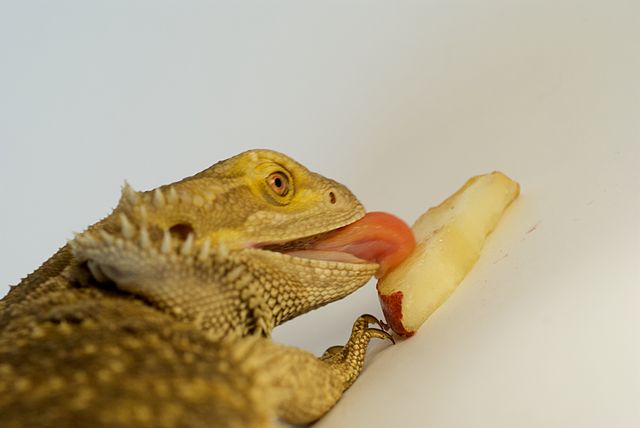Like the human and all other living creatures and things, bearded dragons need to eat with no exception. As a juvenile or hatchling, (2-4 months old) bearded dragons eat of mainly insects with some vegitibles or greens. As your beloved pet ages, however, its diet will need a change. As an adult or growing past the four months of birth, it will need aproximetly 80% vegitible matter and 20% inscects or if a bearded dragon is large enough you could even feed it small pinky mice. One thing to remember is to only feed a bearded dragon a bug that is about the length or shorter of the distance between its eyes.
Also like humans, there are things that are bad for bearded dragons. There is a lot of conflict on what greens to feed a bearded dragon, but what seems to be almost always said to be healthy for a bearded dragon is darker greens. These "darker greens" consist of dandelion, chard, kale, and mustard greens. Bearded dragons also need foods with low levels of protein and phosphorous, but a lot of calcium. A good way to get in calcium (especially juveniles) is to use a very helpful item, calcium powder. All you need is a container that is tall enough to keep crickets from jumping out, crickets, and the calcium powder. Put the crickets in the container and cover them in calcium powder.
Most bearded dragons have a favorite food or treat. So every once and a while (usually every other day) give it a green, juicy Goliath Worm, or another large larvae. But remember to put some calcium powder on it, though!
Bearded dragons can be notorious for being picky or not eating their vegetibles. A method that seems to work amongst others is to gently move the greens with yor fingers. This helps beacause bearded dragons prefer living food, so the movement will trick them into eating their greens.
Another method of feeding your dragon greens is putting a bug under the greens, to again cause movement.

By: Multiphrenic commons.wikimedia.org CC-BY-S
